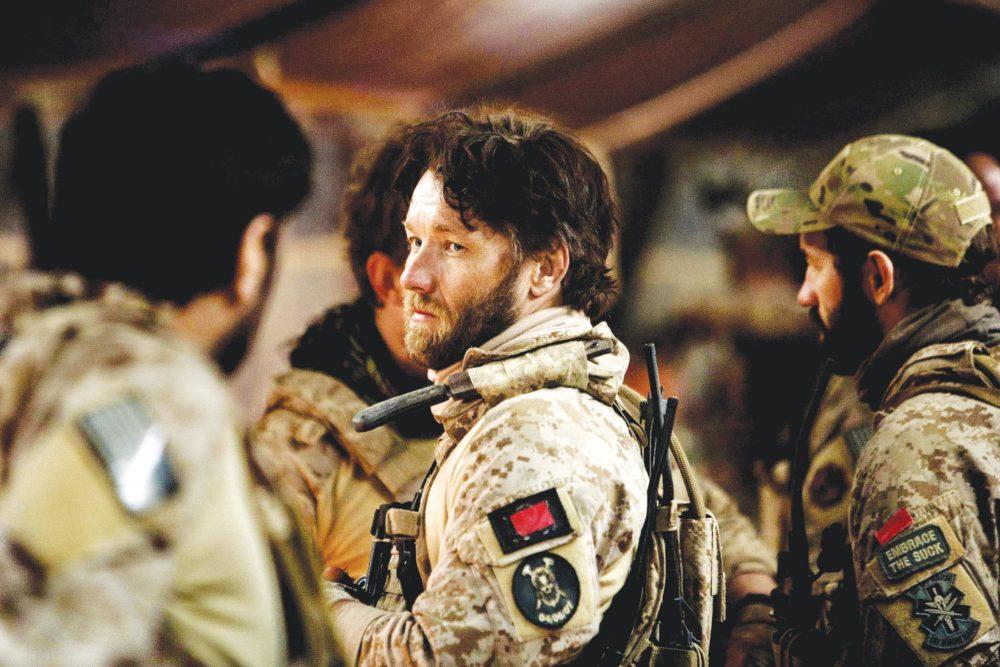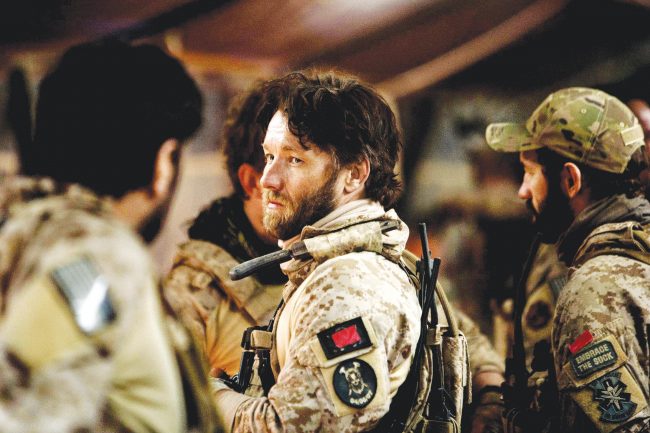
“Zero Dark Thirty” stars Jessica Chastain, Joel Edgerton and Chris Pratt. (Courtesy of Filmofilia)
When the news came out that an elite team of U.S. Navy Seals killed Osama Bin Laden in 2011, the world shook.
Al Qaeda’s horrific terrorist attacks on the United States and other foreign nations took thousands of precious lives and even provoked a war on terror in the Middle East.
Ending the life of Bin Laden was not only physically relieving, but it symbolized the termination and reprisal of evil.
To bring the secretive and mysterious story to life, award-winning director Kathryn Bigelow, director of the famous film “The Hurt Locker,” decided to display the account on the big screen with the movie “Zero Dark Thirty.”
It took months of deep investigation and interviews with former CIA agents to corroborate the facts behind the mission and ultimately secure an appropriate script.
Most importantly, Bigelow knew that the Bin Laden operation was a sensitive subject among the US military, government and civillians that were affected by terrorism.
It was up to her to create a spellbinding, yet factually accurate film.
“Zero Dark Thirty” takes the perspective of CIA operative, Maya (who’s real name was hidden for security purposes) in her quest to hunt down Osama Bin Laden.
The film follows Maya’s every move; from her analysis of every potential co-worker of Bin Laden to the actual killing mission.
Every minute of the two and a half hour film keeps the audience on edge and gives viewers a new insight into the minds behind the scheme.
The box office was a testament to this with the movie grossing more than $90 million.
Although “Zero Dark Thirty” was praised for its cinematography, captivating acting and visually appealing aesthetics, it soon was criticized for its particular portrayal of the U.S. methodology in dealing with prisoners of war.
In the film, there are several gruesome torture scenes involving U.S. officials trying to get information out of the terrorists.
The film was instantly labeled “controversial” for showing this to the American public and the government was quick to deny the validity of some of the methods shown in the film.
In an interview with Stephen Colbert on “The Cobert Report,” Bigelow commented on why she included such graphic scenes in the film.
“It was part of history and we wanted to tell the story respectfully and honestly,” Bigelow said.
Not only did she receive heat from many viewers, but the Senate immediately made claims into beginning a potential “inquiry” on the filmmakers and CIA members to investigate whether confidential information was in fact disclosed.
Led by Senator Dianne Feinstein, the Senators were in question of Bigelow and her motives. According to The Wall Street Journal, Feinstein wrote to the filmmakers claiming “Zero Dark Thirty” was “a grossly inaccurate and misleading portrayal of the interrogations of the Al Qaeda detainees.”
Both political parties attacked the movie as well. The conservatives argued the film was a possible strategy for Obama to receive approval among the people.
On the other hand, the liberals were outraged about the torture scenes and portrayal of the Democratic cabinet that denied “Maya’s” need for troops and assistance proves that Osama Bin Laden was alive.
After enduring the disapproval, Bigelow soon faced another disappointment with the film: no Oscar nomination for best director and only one shared win for Sound Editing at the Academy Awards.
This extreme loss for the movie raised skepticism with Hollywood: how much political views are truly involved in the Academy Awards.
Furthermore, the film had obvious success in the box office and with praising approval by Americans, however this was completely overshadowed by politics.
Many moviegoers and film experts have even lost respect for the Academy due to its unprofessional and biased approach to reviewing the movie.
Regardless of the political position of the film, the cinematography, acting and story line of “Zero Dark Thirty” is undeniably astounding.
The film also puts forth the important themes of heroism, patriotism and a woman’s courage to make one of the most monumental decisions in American history.
“Zero Dark Thirty” is a must-see and will still go down in the books as a 2013 film of the year.









